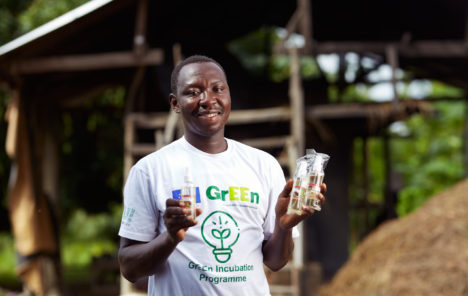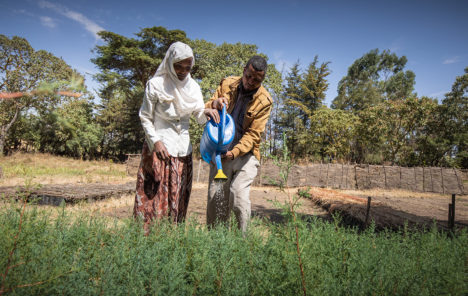The Gambia is among the poorest countries in the world and around 50% of the population live in poverty. Youth unemployment is one of the most significant challenges in the country. According to the Human Development Index, 34% of 15-24-year-olds are not in school or employment.
Young people must have market-relevant skills if they are to secure gainful employment. SOS UK has co-created a programme with SOS Gambia that will increase employment amongst vulnerable young people in the Upper River Region (URR), one of the poorest regions in the country.
The Youth and Employability Centre (YTEP) has enabled students like Fatoumata Fatty, to develop the skills she needs to become an entrepreneur after graduating, setting up her own business and helping other young people in her community.
Her journey started in 2020, when she was a young person struggling to find work. Employers would not hire Fatoumata because she has a disability, which left her feeling isolated and frustrated.
That is when she decided she must find training to learn a skill so she could set up her own business to take ownership of her own future.

In 2020 she joined the Youth and Employability Centre in The Gambia. She trained there for two years and was an integral part of the women’s centre during her studies.
The women’s empowerment centre was run by a group of female students who made environmentally friendly sanitary products for other female students and staff.
After she graduated, she started making clothing in her home, until she had enough money to buy her own shop. Then later in 2022 she opened her own shop that focuses on sewing goods and making clothing for babies and women.
In five years time, Fatoumata wants to expand her sewing business and develop a new ice cream business. In her local area, there is no other ice cream businesses, so she knows that she can start to create a unique company for the local people and gain greater profits.
The best thing about her own business is that she now has her own independence and is not reliant on anyone else. She can fix her wheelchair when it breaks and is self-sufficient, whereas before she would get stuck for days trying to find the money to get it mended.
“The business is important for me because I am disabled it has given me ownership of my own future. Now I can manage myself.”
Fatoumata has been able to employ other young people to work for her and she has passed on her knowledge of sewing and design to her new colleagues. Fatamata is also looking to hire other people with disabilities so that she can help empower them and teach them what she learnt from the YTEP centre.



